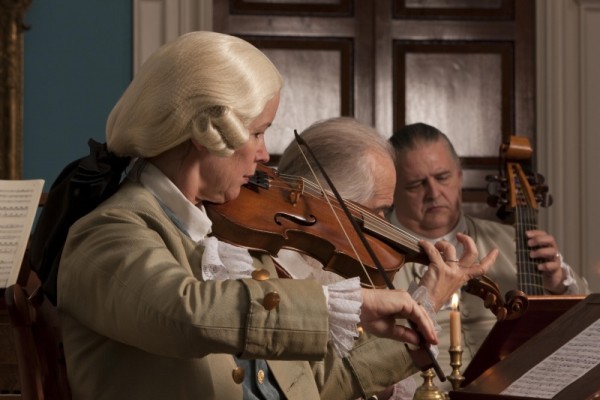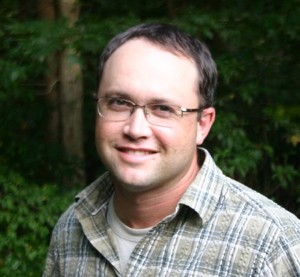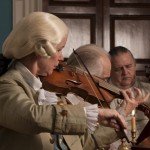 Thomas Jefferson expressed a common mood among 18th-century Americans when he said music was “the favorite passion of my soul.” Now, more than 200 years later, guests to the Revolutionary City have a special opportunity to take in the music that lit a fire inside Jefferson and his contemporaries.
Thomas Jefferson expressed a common mood among 18th-century Americans when he said music was “the favorite passion of my soul.” Now, more than 200 years later, guests to the Revolutionary City have a special opportunity to take in the music that lit a fire inside Jefferson and his contemporaries.
The 5th Annual Colonial Williamsburg Early Music Festival returns to the stages in the Historic Area from September 23-26. “From England to America: Music, Musicians and Musical Events in Colonial Virginia,” is a series of lectures and performances that explore one of the most popular elements of Colonial Williamsburg’s programming: the melodies that moved Americans long ago.
Festival attendees will hear from eminent scholar-musicians on the relationship that early Americans had to music. They’ll explore the role music had in Virginia’s first 100 years and explain why the local music scene was enough to turn a couple harpsichordists against one another. They’ll offer insight into how people in the 18th century would have seen and interpreted musical theater, and examine the favorite tunes of George Washington, who, although a music aficionado, nevertheless conceded that he could neither sing “nor raise a single note on any instrument.”
The evening performances are more than just a chance to hear reproduced versions of old scores. For instance, in the concert “From the Collection,” Colonial Williamsburg musicians will perform pieces on a violin, viola, harpsichord and organ that once reverberated to the delight of 18th-century Americans and now are part of the museum’s antique holdings.
“These instruments use strings made of gut rather than metal or nylon,” says Lance Pedigo, Colonial Williamsburg’s Manager of Music Programs. “The sound they produce is entirely different than modern instruments and they offer a realistic example of the tones that would have been heard in the 18th century.”
But it’s more than old sound that will stimulate modern senses; it’s an atmosphere, a perspective that performers are reproducing for onlookers. A good example is the staging of “Thomas and Sally; or The Sailor’s Return.” This comedic opera premiers for the first time ever at Colonial Williamsburg.
“Thomas and Sally” provides a snapshot of writers, actors and musicians who put on original productions back when Washington and Jefferson were said to have been in attendance. But this is also a look at the 18th-century world our ancestors knew, according to Brandon Bruce, Colonial Williamsburg’s Manager of Performance Interpretation and director of the performance
For starters, says Bruce, the opera is a so-called “after piece,” meaning it was originally performed after a couple hours of a formal, full-length play. Modern audience members might make quick for the exit after a such a long show, but 18th-century theater-goers beat no such retreat. They often wanted more and an after piece was what they got.
“Thomas and Sally,” dating to the Seven Years’ War — or the French and Indian War in North America — is imbued with patriotic British imagery, telling the story of a maiden awaiting her lover’s return from war. The story is engaging enough, explains Bruce, but the melodies take center stage.
“The music makes “Thomas and Sally“ high in energy but light in feeling,” says Bruce. “People back then knew they weren’t seeing some long epic. This was very comic and that’s the reason it was so popular back then.”
In their quest for authenticity, festival organizers have cultivated not just a sound, but a mood, a zeitgeist, as close to total immersion in 18th-century music as they can muster. Take for instance, the festival’s finale, “Palace Concert: The 1766 Concert in Fredericksburg.” The Governor’s Musick, Colonial Williamsburg’s resident ensemble, along with several special guests, will re-create, note for note and instrument for instrument, a concert performed in December 1766 and seen by a young George Washington. A reception follows the Palace Concert, allowing attendees to mingle with the musicians who carry on these centuries-old traditions.
“You get to experience exactly what would have happened during that performance-the ambiance, the instruments, the sound, everything,” says Pedigo. “It’s a true 18th-century experience.”
Want to know more and hear a sample of the music that will be performed at the 5th annual Colonial Williamsburg Early Music Festival? Check out this Past & Present podcast with Colonial Williamsburg’s Jane Hanson.
GUEST BLOGGER: BEN SWENSON
 Ben Swenson lives in Williamsburg, Virginia with his wife and two sons. His writing career has led him to all sorts of odd corners of the world: he has jumped out of a perfectly good airplane, wrestled crab pots on a Chesapeake Bay work boat and taken a helicopter ride through a twisting river gorge. Odds are good you will find him outside with them somewhere when he is not chasing or telling stories.
Ben Swenson lives in Williamsburg, Virginia with his wife and two sons. His writing career has led him to all sorts of odd corners of the world: he has jumped out of a perfectly good airplane, wrestled crab pots on a Chesapeake Bay work boat and taken a helicopter ride through a twisting river gorge. Odds are good you will find him outside with them somewhere when he is not chasing or telling stories.

Leave a Reply